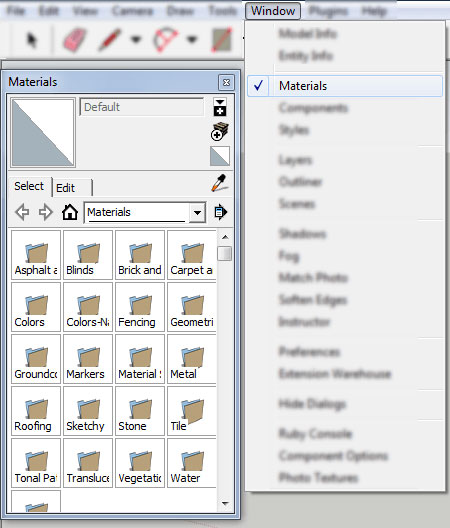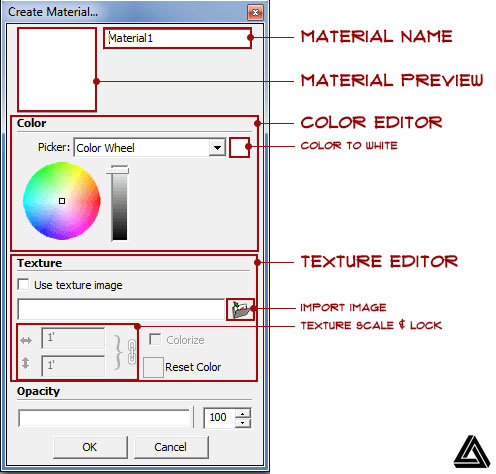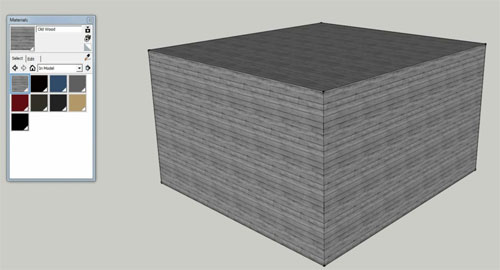Sketchup features a pretty nice array of materials designed into it, however it most likely doesn’t have everything you’re searching for. During this sketchup tutorial, the user will learn the way to import your favorite sketchup textures and switch them into new materials that you simply will use in your models.
1. If you haven’t already, the primary factor you’re reaching to wish to try and do is use a sketchup texture to use.
SketchupTexture – A good place for a lot of free textures.
CGtextures – This won’t to be my go-to before user found SketchupTexture. These textures don't seem to be all super clean, however it’s actually associate in nursing awful library to seem through.
2. Click on the Paint Bucket tool. Doing this can appear the Materials window.
 |
| Image Courtesy: designerhacks.com |
Alternatively, you'll be able to move to the Window tab and choose Materials from the drop-down list.
 |
| Image Courtesy: designerhacks.com |
3. Within the Material window click the produce Material button.
 |
| Image Courtesy: designerhacks.com |
4. The produce Material window can then pop-up. To import your sketchup textures, click the Import Image within the Texture Editor section. Once your texture image is uploaded, you’ll see a preview of it within the higher left corner. You’ll be able to use the colour Editor Section to regulate your material’s color while not having to edit it in Associate in nursing external program and re-import it. If the texture starts to look weird once for the victimization the colour picker, attempt checking the change choice within the Texture Editor section.
Change turns your texture to black and white so puts the colour overlay on prime. If you import your texture and it’s too tiny or large, use the feel Scale & Lock within the Texture Editor section to regulate the size of your sketchup texture.
When you mess things up unfortunate, there’s forever the Reset Color.
 |
| Image Courtesy: designerhacks.com |
5. Click OK.
Your custom material can currently show up within the sketchup material library.
6. Select it, grab the Paint Bucket tool, and have at it
 |
| Image Courtesy: designerhacks.com |
Ref: designerhacks.com
~~~~~~~~~~~~~~~~~~~~~
Published By
Rajib Dey
~~~~~~~~~~~~~~~~~~~~~
No comments:
Post a Comment